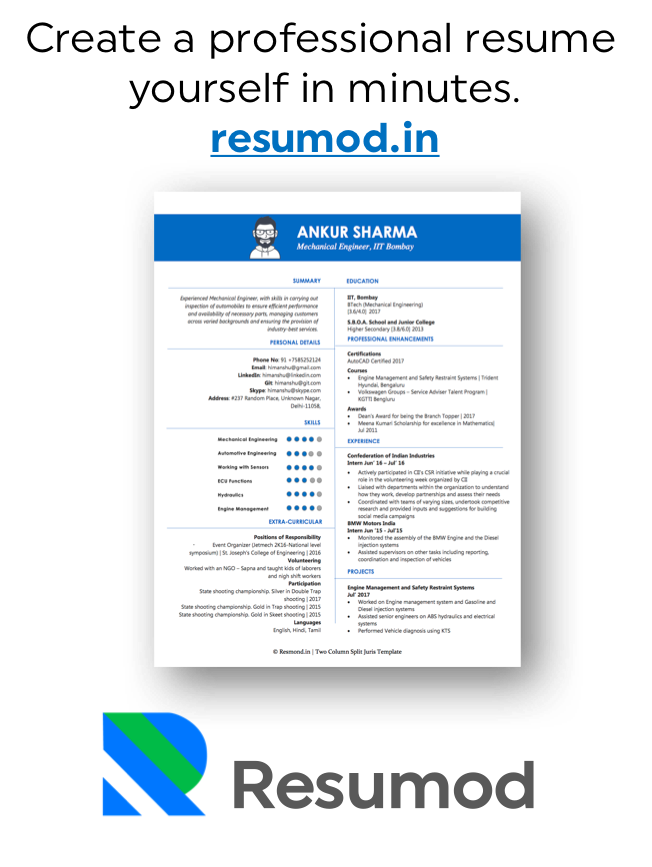When you land up the job interview that you’ve been pining for a really long time, your happiness knows no bounds. However, you need to prepare yourself well enough for what’s in store. Not only this, you also need to understand as to what needs to be said and what should be left unsaid during your interview.
There are a few things which do not need to be mentioned at the interview. So much so that some of these things may even cost you that dream job of yours. You need to impress the interviewer with your personality, the skills that you have and the confidence and drive to make things work. Other things should be kept at the back seat unless you are really asked about them.
Check out these 10 things that you should never say out loud at your job interview.
Cribbing about your last company: No matter how unhappy you were at your last company, you don’t need to keep saying negative things about the last place you worked at. You need to understand that you are being hired or are being interviewed only because you did a good job at the last organization you worked at. Instead, you could focus on the positive things that you learn there and the skills that you’ll be carrying forward to the new company.
Complaining about your old Boss/colleagues: Just like you don’t need to speak ill about the company, you also do not need to say negative things about your old boss or the colleagues that you worked with. You don’t want the interviewer to get an impression that you do not get along well with people and that if they hire you, you might just become a troublemaker. Thus, keep all the hatred inside you and just say that you learnt a thing or two from your boss as well as colleagues if asked about it.
Telling them that you are nervous: No matter how scared and nervous you are, do not at any cost let them know that you’re feeling that way. No interviewer wants to hire a person who doesn’t sound or look confident enough to face an interview. Instead of following the phrase honesty is the best policy, try to look and sound confident so that you don’t lose out on that job that you’ve been dreaming of since a really long time. Remember, not all bosses (old or new) are cool.
Asking them to refer your resume: There are times when the interviewer has scanned through your resume thoroughly but still wants to ask a few questions face to face. When that’s happening and you are asked about a certain company that you worked at or a skill set that you have mastered, instead of saying that you could see that in my resume, it’s better to simply answer the questions that are being asked. By asking you these questions they are trying to evaluate as to how good your communication as well as social skills are.
By asking you these questions they are trying to evaluate as to how good your communication as well as social skills are.
Talking money first: So here’s the thing, while all of us work for the sole purpose of earning money, it’s inappropriate if you bring up the topic of salary of compensation during an interview even before the interviewer asks for it. Initially, try to keep the money factor out and wait for the right time. If you’re at the door and ask about money the very first time, you may be considered as someone whose only motives to join a new company is money. So keep that money thought in your mind and leave it for some time later.
Initially, try to keep the money factor out and wait for the right time. If you’re at the door and ask about money the very first time, you may be considered as someone whose only motives to join a new company is money.
Sounding Desperate: No matter how important this job is to you, do not under any circumstances try to sound a little too desperate. Sounding desperate will only ruin your chances of getting the dream job of yours. Usually, the employer or the interviewer considers desperation as a sign of weakness in a person. Also, if you sound too desperate, your interviewer might think that you will leave as soon as you find another great offer from another company.
Talking about personal stuff: While your personal life may be very important to you and you may have gone through bad times in the past, it’s best not to mention it during your interview unless it’s really important. If you talk too much about your personal issues at the interview, your interviewer might get the impression that if he or she hired you, you would concentrate on the personal stuff more than the actual job that they are offering.
Not asking any questions: During the interview the interviewer will ask you quite a lot of questions regarding the skills you have, the company you work for or the college you studied at. After you are done with your interview or even during the interview, he or she might ask you if you have any questions. During that time, instead of sitting silent, try to ask something. Ask about the role that you will be offered, about the company that you be working at because if you ask a few questions the interviewer will feel that you are interested in the job.
Ask about the role that you will be offered, about the company that you be working at because if you ask a few questions the interviewer will feel that you are interested in the job.
Trying to be over friendly: When you enter the door please remember that you’re here for an interview and you’re not here to make best friends with the person who’s taking your interview. So, you don’t have to force a friendly relationship with the interviewer. The person sitting on the other side of the table has taken so many interviews that he or she will realise as to when you are faking it. Try to be real and not force a rappot with the interviewer. There is no need to compliment on how great she looks or how beautiful that colour looks on her, you will only end up sounding creepy.
Telling them you are not experienced enough: You may not be great at your job and may not have done the best things at your workplace, but it’s best to keep it with you. You don’t have to go there and tell the interviewer that I may not be as experienced as somebody you want but I learn all of it. This just gives a very bad impression of you as a professional. Instead, you could let the interviewer figure out as to what kind of a professional you will be in regarding to your field.
Telling them you are too skilled / experienced: While you don’t need to tell about your inexperience, you also do not need to constantly keep mentioning how good you are at your job. Please leave it to the interviewer to figure out as to how exactly great are you at your job and how well will you be able to manage it. If you keep mentioning about how well you been able to manage things at the last company, you may end up annoying the interviewer and losing that job. Just be real and let the interviewer figure out.




Your post extremely cool. I glad to be here. I enjoyed reading your articles and i would like to bookmark your posts.